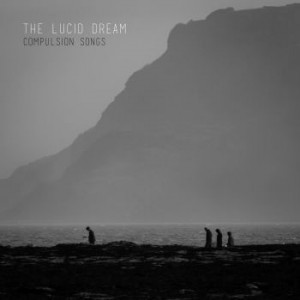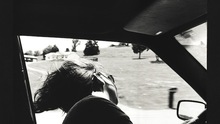This latest album from queen of whimsy Regina Spektor is the first she’s written entirely in the same time period (previous albums being collections of songs she’s written throughout her career). So it seems odd at first that, on the surface, it’s also her least sonically coherent to date. Remember us to Life flits from electropop to piano ballad to strange grandiose quasi hip-hop and back to piano ballad - but maybe that’s because that’s how life is? You don’t go through a day thinking about a thing; it’s complex and uneven and all over the place. So rather than being a weakness of the album, the sonic incoherence reflects this.
Some of the songs that stand out as the strongest here (or at least the most interesting) are the ones that don’t necessarily make sense together - the most obvious example being lead single 'Small Bill$'. Its swaggering hip-hop beat is like nothing else Spektor has ever come out with before, never mind on this album. It works well as a new musical setting on which to base her keenly observed storytelling as well as promising to get stuck in your head for days. Elsewhere, on the aptly-named ‘Tornadoland’, beautifully captivating, wistful chords accelerate into dizzying chaos via sliding electronically treated violins, and the result is genuinely wonderful.
Meanwhile, ‘The Trapper and the Furrier’, though unique in sound and as smartly observed as you’d expect from Spektor, feels like it tries just a bit too hard with its sound of a plodding sort of horror to capture the nightmarish mundanity of capitalism. Similarly, classic Spektor piano songs ‘Older and Taller’ and ‘Grand Hotel’ feel like they try a bit hard in their own ways. The jaunty swing and the overload of assonance on the former ends up feeling saccharine, while ‘Grand Hotel’, despite its beautiful piano part, feels strangely nostalgic for imagery that doesn’t really evoke anything particular, so that last line “You’ll always have friends at the Grand Hotel” ends up feeling similarly all-icing-no-cake.
As a more traditionally created and compiled album (as opposed to the Spektor’s previous efforts, effectively hits collections), there’s unfortunately also what feels like filler - of course it’s not filler really, but it’s not often you sit listening to a Regina Spektor song and feel...well, bored. But unfortunately this happens a bit with ‘Black and White’, strangely the closer ‘The Visit’, and disappointingly, ‘Obsolete’. The latter is a song with a frustratingly good concept and a way of expressing it that should be heartbreaking but just fails to keep hold of attention.
Remember us to Life has its moments though, for sure, and present in most of these songs are several reminders of Spektor’s talent for songwriting. The Light’, without needing any kind of wacky innovation, is a straightforward piano ballad nothing short of lovely. And pervading the album is her musical creativity - her piano parts are often gorgeously lyrical, and her harmonic progressions are often brilliant. But as a whole, Remember us to Life feels a little patchy, with enough ups to make it good, but too many downs to make it great.
-
6Nina Keen's Score























